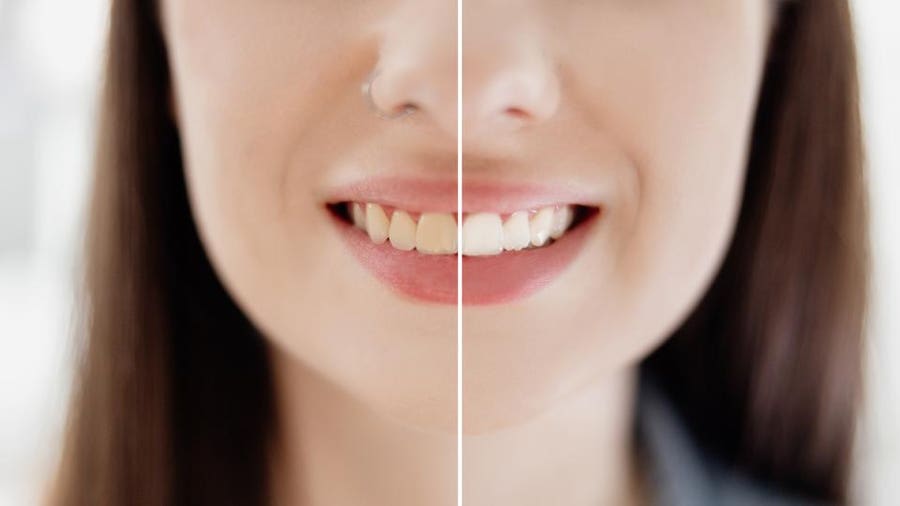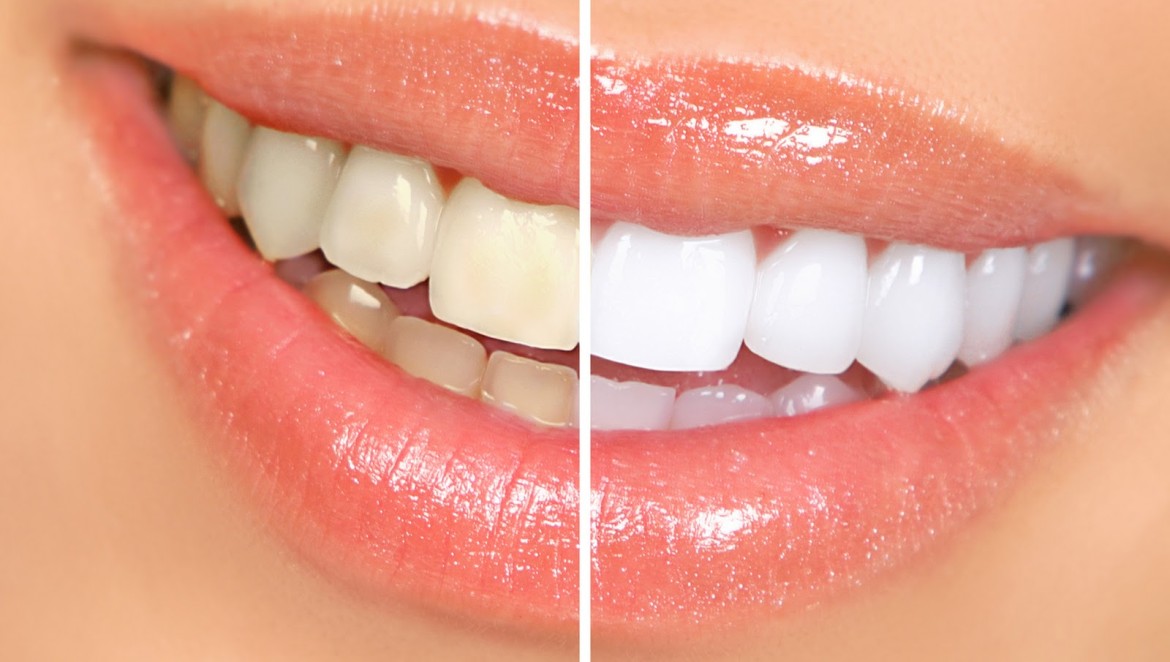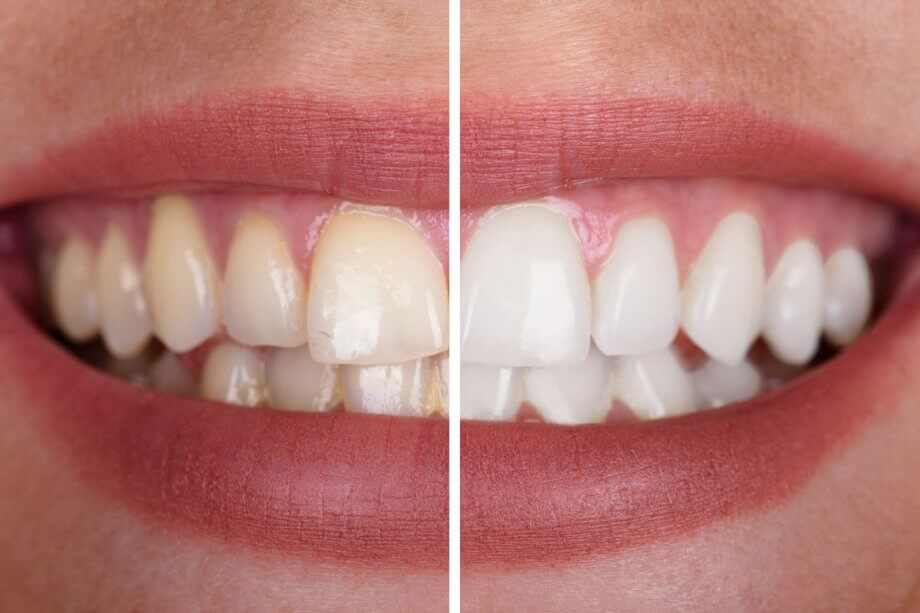Are you tired of feeling self-conscious about your stained teeth? Wondering if insurance can come to the rescue and cover the cost of teeth whitening? Look no further, because in this article, we will explore the topic and shed light on whether insurance providers are willing to help you achieve that dazzling smile you’ve always dreamed of. So, grab a cup of coffee or tea, sit back, and let’s find out if your insurance has got your back when it comes to teeth whitening.

This image is property of x8g5r6v5.stackpathcdn.com.
What is teeth whitening?
Teeth whitening is a cosmetic dental procedure that involves lightening the color of your teeth to make them appear brighter and whiter. It is a popular choice for people who want to enhance their smiles and boost their confidence. Teeth whitening treatments can be done at a dental office or in the comfort of your own home using various products. Additionally, there are natural solutions that can help brighten your teeth without the use of chemicals or professional assistance.
Types of teeth whitening
In-office teeth whitening
In-office teeth whitening is a professional treatment performed by a dentist or dental hygienist at their office. It typically involves the application of a bleaching agent, such as hydrogen peroxide or carbamide peroxide, directly onto the teeth. The bleaching agent is activated using a special light or laser. This method tends to produce immediate and noticeable results, often achieving several shades lighter in just one visit.
At-home teeth whitening
At-home teeth whitening options provide a more convenient and affordable alternative to in-office treatments. These kits typically include whitening gels or strips that you can apply to your teeth yourself. They may contain lower concentrations of bleaching agents than those used in professional treatments, which means it may take longer to achieve desired results. At-home teeth whitening kits are widely available, and many people find them to be effective and easy to use.
Natural teeth whitening solutions
For those who prefer more natural and chemical-free options, there are several home remedies and natural solutions that can help whiten teeth. These include brushing with baking soda, using hydrogen peroxide as a mouthwash, or rubbing the inner part of a banana peel onto the teeth. While these natural remedies may not provide instant results like professional treatments, they can gradually remove surface stains and improve the overall appearance of your teeth.

This image is property of thumbor.forbes.com.
Why do people get teeth whitening?
People choose teeth whitening for various reasons. One common motivation is to enhance their appearance and have a brighter, more youthful smile. Yellow or stained teeth can make people feel self-conscious and affect their confidence in social situations. Teeth whitening can help remove stains caused by age, consumption of staining substances like coffee or tobacco, or certain medications. It can also be done before important events like weddings, job interviews, or graduations, where a confident smile is desired.
Factors affecting the cost of teeth whitening
The cost of teeth whitening can vary depending on a few factors. It is important to understand what influences the price of treatment before deciding on a teeth whitening option.
Type of teeth whitening
The type of teeth whitening treatment you choose will significantly affect the cost. In-office treatments tend to be more expensive due to the expertise and professional equipment involved. At-home kits are generally more affordable but may require multiple applications to achieve desired results.
Location
The cost of teeth whitening can also vary depending on your geographical location. Dental services tend to be more expensive in certain areas or cities with higher living costs. It is advisable to research local dental clinics and compare prices before making a decision.
Dentist’s expertise
The experience and expertise of the dentist or dental professional performing the teeth whitening procedure can influence the cost. Highly skilled and reputable professionals may charge more for their services. However, it is essential to prioritize quality and ensure that you are in capable hands when it comes to dental treatments.
Additional treatments required
In some cases, additional dental treatments may be necessary before or during teeth whitening. For example, if you have cavities or gum disease, these issues will need to be addressed before proceeding with teeth whitening. These additional treatments can increase the overall cost of the procedure.

This image is property of www.goldensmilesdental.com.
Does insurance cover teeth whitening?
While dental insurance typically covers necessary dental treatments like cleanings, fillings, and extractions, it generally does not cover cosmetic procedures like teeth whitening. Most insurance providers consider teeth whitening to be an elective procedure rather than a medically necessary one.
Dental insurance coverage for teeth whitening
Typical exclusions
As mentioned earlier, teeth whitening is usually not covered by dental insurance. It falls under the category of cosmetic dentistry, which means it is considered optional and not essential for the overall health of your teeth. Insurance providers typically exclude coverage for any treatment that is solely for cosmetic purposes.
Exceptions and limitations
Although dental insurance rarely covers the cost of teeth whitening, there may be exceptions or limitations depending on your specific insurance plan. Some plans may offer a partial reimbursement or a discounted rate for teeth whitening if it is deemed medically necessary due to severe discoloration or staining caused by certain medical conditions.
Insurance plans that cover teeth whitening
There are a few insurance plans that provide coverage for teeth whitening under certain circumstances. These plans generally require a documented medical need for the procedure, such as discoloration caused by medication or specific health conditions. It is essential to check with your insurance provider and review your policy to determine if teeth whitening coverage is available.

This image is property of www.midtowndentalcareassociates.com.
Medical insurance coverage for teeth whitening
Cases where medical insurance may cover teeth whitening
While dental insurance is unlikely to cover teeth whitening, there may be instances where medical insurance comes into play. If the staining of your teeth is a result of a medical condition or medication, such as tetracycline staining or enamel hypoplasia, your medical insurance may provide coverage for teeth whitening. However, coverage for these cases is rare, and it is best to consult with your dentist and insurance provider for more information.
Conditions that may qualify for medical coverage
Certain medical conditions or circumstances may qualify for teeth whitening coverage under medical insurance. These conditions include congenital enamel defects, discoloration caused by trauma or injury, or severe staining caused by medication or medical treatments. Each insurance policy might have specific criteria and requirements for coverage, so it is important to thoroughly review your policy and consult with your dentist and insurance provider.
Alternatives to insurance coverage
If teeth whitening is not covered by your dental or medical insurance, there are alternative options available to help manage the cost.
Dental discount plans
Dental discount plans are membership-based programs that provide discounted rates on various dental services, including teeth whitening. These plans involve an annual fee, and members can receive reduced prices when visiting participating dentists. While dental discount plans can help reduce the overall cost of teeth whitening, it is important to note that the discounts may vary, and not all dentists accept these plans.
Flexible spending accounts (FSAs)
Flexible spending accounts (FSAs) are offered by some employers as part of their employee benefits package. These accounts allow you to set aside pre-tax dollars to spend on eligible healthcare expenses, including dental treatments. If your teeth whitening falls under the category of medically necessary treatment, you may be able to use funds from your FSA to cover a portion of the cost.
Health savings accounts (HSAs)
Health savings accounts (HSAs) are another option to consider when it comes to financing teeth whitening. HSAs are personal savings accounts designed specifically for medical expenses and are available to individuals with high-deductible health insurance plans. Contributions to HSAs are tax-deductible, and the funds can be used to cover a wide range of medical and dental expenses, including teeth whitening.
Payment plans and financing options
Many dental clinics offer payment plans or financing options to help patients manage the cost of teeth whitening. These plans allow you to spread out the payments over a period of time, making it more affordable and convenient. Some dental offices may also work with third-party financing companies that specialize in dental procedures, offering flexible payment options tailored to your budget.

This image is property of peeldentalstudio.com.au.
Tips for getting insurance coverage for teeth whitening
While insurance coverage for teeth whitening may be limited, there are a few tips that can potentially increase your chances of getting coverage:
Check your policy
Review your dental and medical insurance policies to understand the coverage details and exclusions. Look for any exceptions or limitations that may apply to teeth whitening.
Consult with your dentist
Consult with your dentist or dental professional to determine if there are any medical factors that could justify the need for teeth whitening. They can provide documentation and support your case when communicating with insurance providers.
Get pre-authorization
Before proceeding with teeth whitening, request pre-authorization from your insurance provider. This will allow you to confirm if they will cover any portion of the cost and avoid any surprises or payment disputes later on.
Appeal if coverage is denied
If your insurance provider denies coverage for teeth whitening, consider appealing the decision. Provide any necessary supporting documents, such as dental records or medical history, to strengthen your case. Sometimes, a well-presented appeal can result in a change of decision.
Conclusion
Teeth whitening is a popular cosmetic dental procedure that can help enhance your smile and boost your confidence. While insurance coverage for teeth whitening is limited, it is important to explore your options and understand the factors that influence the cost. Consider alternative financing methods, such as dental discount plans or flexible spending accounts, and always consult with your dentist and insurance provider to determine the best course of action. Remember, a bright and confident smile is worth investing in.